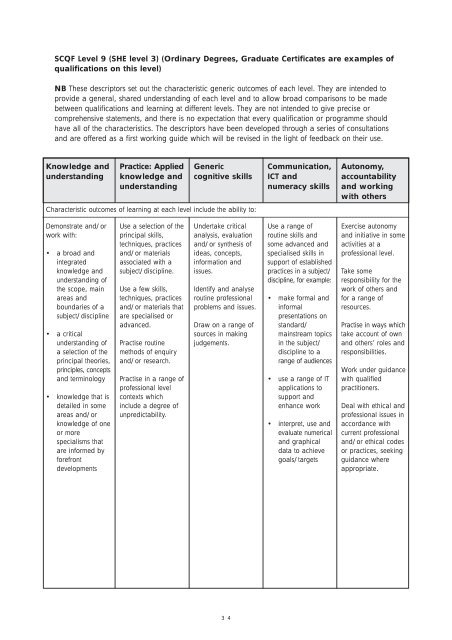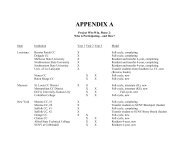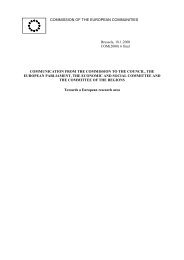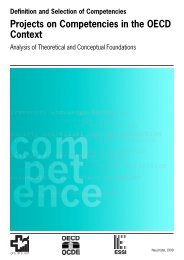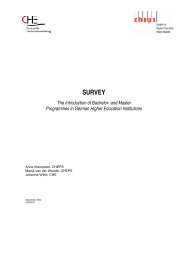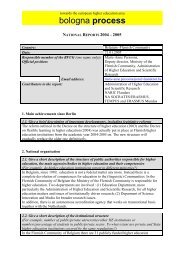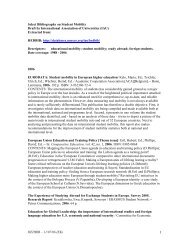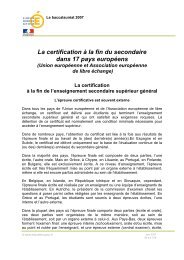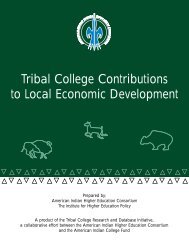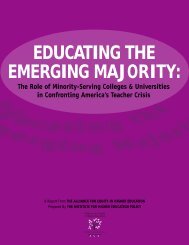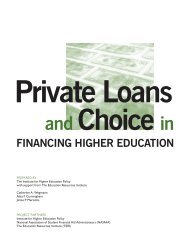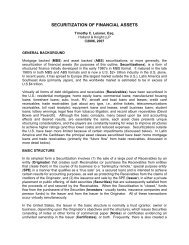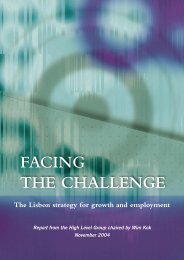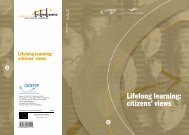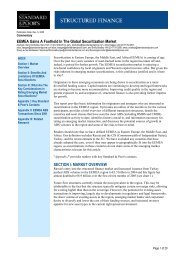An Introduction to the Scottish Credit and Qualifications Framework
An Introduction to the Scottish Credit and Qualifications Framework
An Introduction to the Scottish Credit and Qualifications Framework
You also want an ePaper? Increase the reach of your titles
YUMPU automatically turns print PDFs into web optimized ePapers that Google loves.
SCQF Level 9 (SHE level 3) (Ordinary Degrees, Graduate Certificates are examples of<br />
qualifications on this level)<br />
NB These descrip<strong>to</strong>rs set out <strong>the</strong> characteristic generic outcomes of each level. They are intended <strong>to</strong><br />
provide a general, shared underst<strong>and</strong>ing of each level <strong>and</strong> <strong>to</strong> allow broad comparisons <strong>to</strong> be made<br />
between qualifications <strong>and</strong> learning at different levels. They are not intended <strong>to</strong> give precise or<br />
comprehensive statements, <strong>and</strong> <strong>the</strong>re is no expectation that every qualification or programme should<br />
have all of <strong>the</strong> characteristics. The descrip<strong>to</strong>rs have been developed through a series of consultations<br />
<strong>and</strong> are offered as a first working guide which will be revised in <strong>the</strong> light of feedback on <strong>the</strong>ir use.<br />
Knowledge <strong>and</strong><br />
underst<strong>and</strong>ing<br />
Practice: Applied<br />
knowledge <strong>and</strong><br />
underst<strong>and</strong>ing<br />
Generic<br />
cognitive skills<br />
Characteristic outcomes of learning at each level include <strong>the</strong> ability <strong>to</strong>:<br />
Communication,<br />
ICT <strong>and</strong><br />
numeracy skills<br />
Au<strong>to</strong>nomy,<br />
accountability<br />
<strong>and</strong> working<br />
with o<strong>the</strong>rs<br />
Demonstrate <strong>and</strong>/or<br />
work with:<br />
• a broad <strong>and</strong><br />
integrated<br />
knowledge <strong>and</strong><br />
underst<strong>and</strong>ing of<br />
<strong>the</strong> scope, main<br />
areas <strong>and</strong><br />
boundaries of a<br />
subject/discipline<br />
• a critical<br />
underst<strong>and</strong>ing of<br />
a selection of <strong>the</strong><br />
principal <strong>the</strong>ories,<br />
principles, concepts<br />
<strong>and</strong> terminology<br />
• knowledge that is<br />
detailed in some<br />
areas <strong>and</strong>/or<br />
knowledge of one<br />
or more<br />
specialisms that<br />
are informed by<br />
forefront<br />
developments<br />
Use a selection of <strong>the</strong><br />
principal skills,<br />
techniques, practices<br />
<strong>and</strong>/or materials<br />
associated with a<br />
subject/discipline.<br />
Use a few skills,<br />
techniques, practices<br />
<strong>and</strong>/or materials that<br />
are specialised or<br />
advanced.<br />
Practise routine<br />
methods of enquiry<br />
<strong>and</strong>/or research.<br />
Practise in a range of<br />
professional level<br />
contexts which<br />
include a degree of<br />
unpredictability.<br />
Undertake critical<br />
analysis, evaluation<br />
<strong>and</strong>/or syn<strong>the</strong>sis of<br />
ideas, concepts,<br />
information <strong>and</strong><br />
issues.<br />
Identify <strong>and</strong> analyse<br />
routine professional<br />
problems <strong>and</strong> issues.<br />
Draw on a range of<br />
sources in making<br />
judgements.<br />
Use a range of<br />
routine skills <strong>and</strong><br />
some advanced <strong>and</strong><br />
specialised skills in<br />
support of established<br />
practices in a subject/<br />
discipline, for example:<br />
• make formal <strong>and</strong><br />
informal<br />
presentations on<br />
st<strong>and</strong>ard/<br />
mainstream <strong>to</strong>pics<br />
in <strong>the</strong> subject/<br />
discipline <strong>to</strong> a<br />
range of audiences<br />
• use a range of IT<br />
applications <strong>to</strong><br />
support <strong>and</strong><br />
enhance work<br />
• interpret, use <strong>and</strong><br />
evaluate numerical<br />
<strong>and</strong> graphical<br />
data <strong>to</strong> achieve<br />
goals/targets<br />
Exercise au<strong>to</strong>nomy<br />
<strong>and</strong> initiative in some<br />
activities at a<br />
professional level.<br />
Take some<br />
responsibility for <strong>the</strong><br />
work of o<strong>the</strong>rs <strong>and</strong><br />
for a range of<br />
resources.<br />
Practise in ways which<br />
take account of own<br />
<strong>and</strong> o<strong>the</strong>rs’ roles <strong>and</strong><br />
responsibilities.<br />
Work under guidance<br />
with qualified<br />
practitioners.<br />
Deal with ethical <strong>and</strong><br />
professional issues in<br />
accordance with<br />
current professional<br />
<strong>and</strong>/or ethical codes<br />
or practices, seeking<br />
guidance where<br />
appropriate.<br />
3 4


